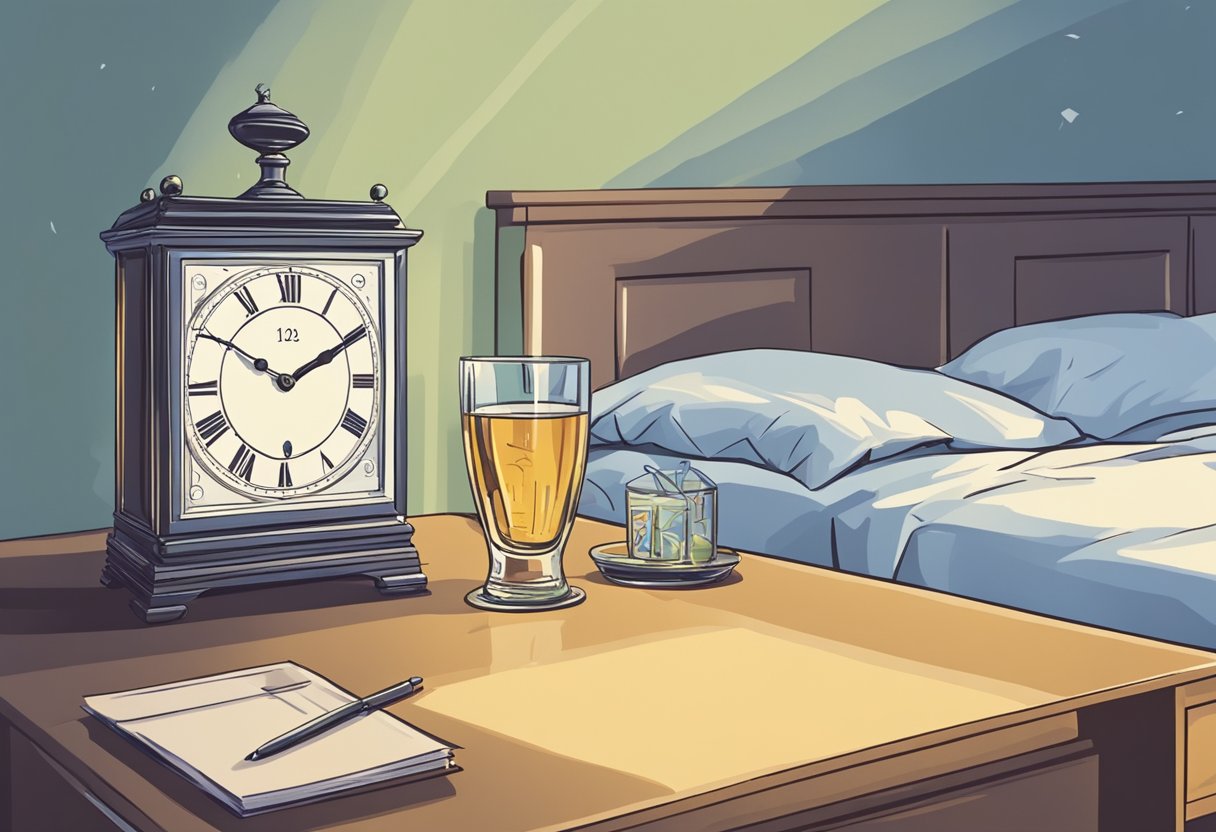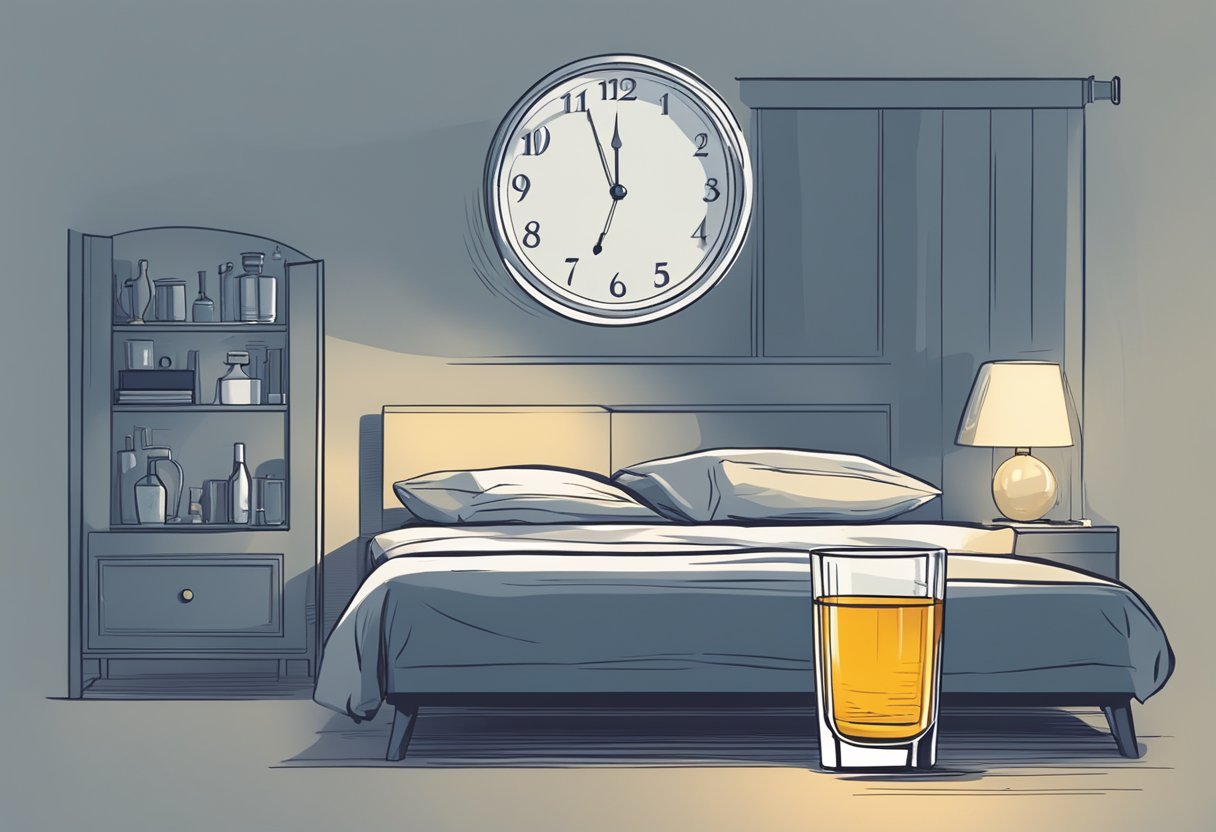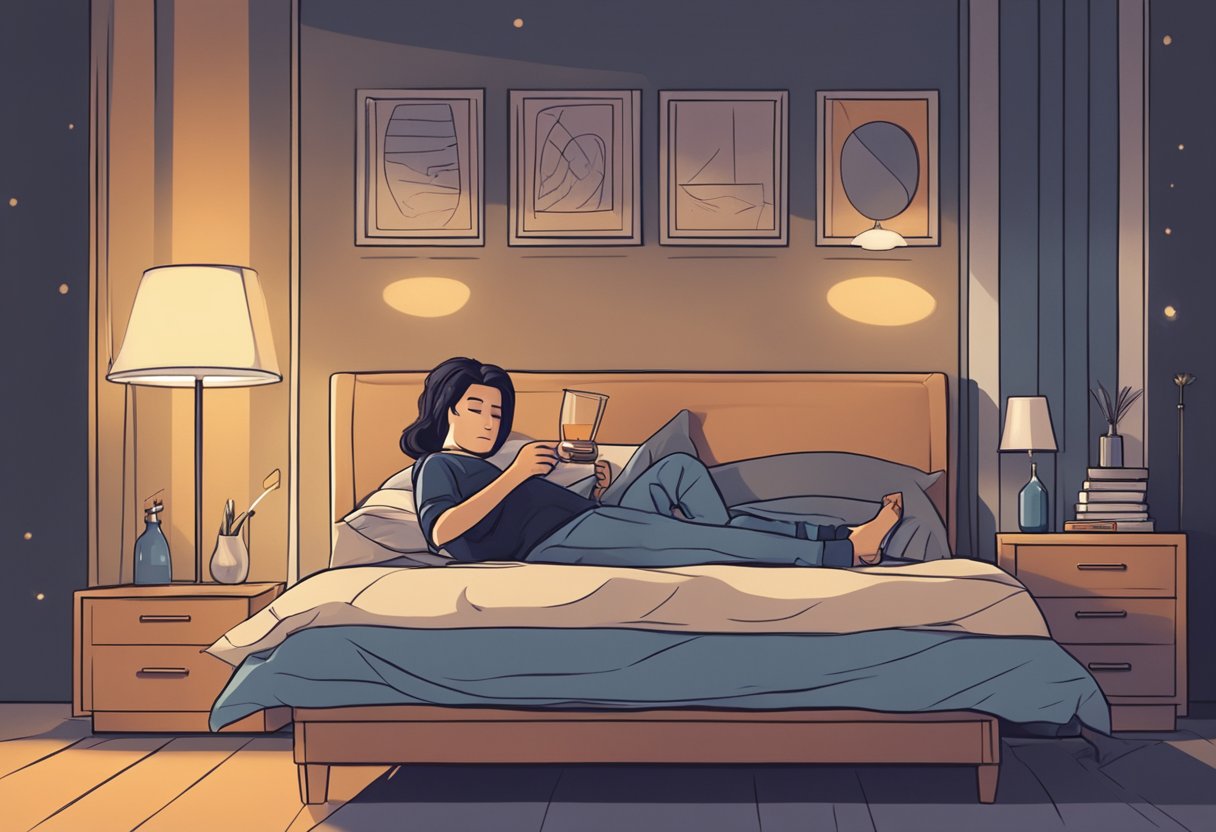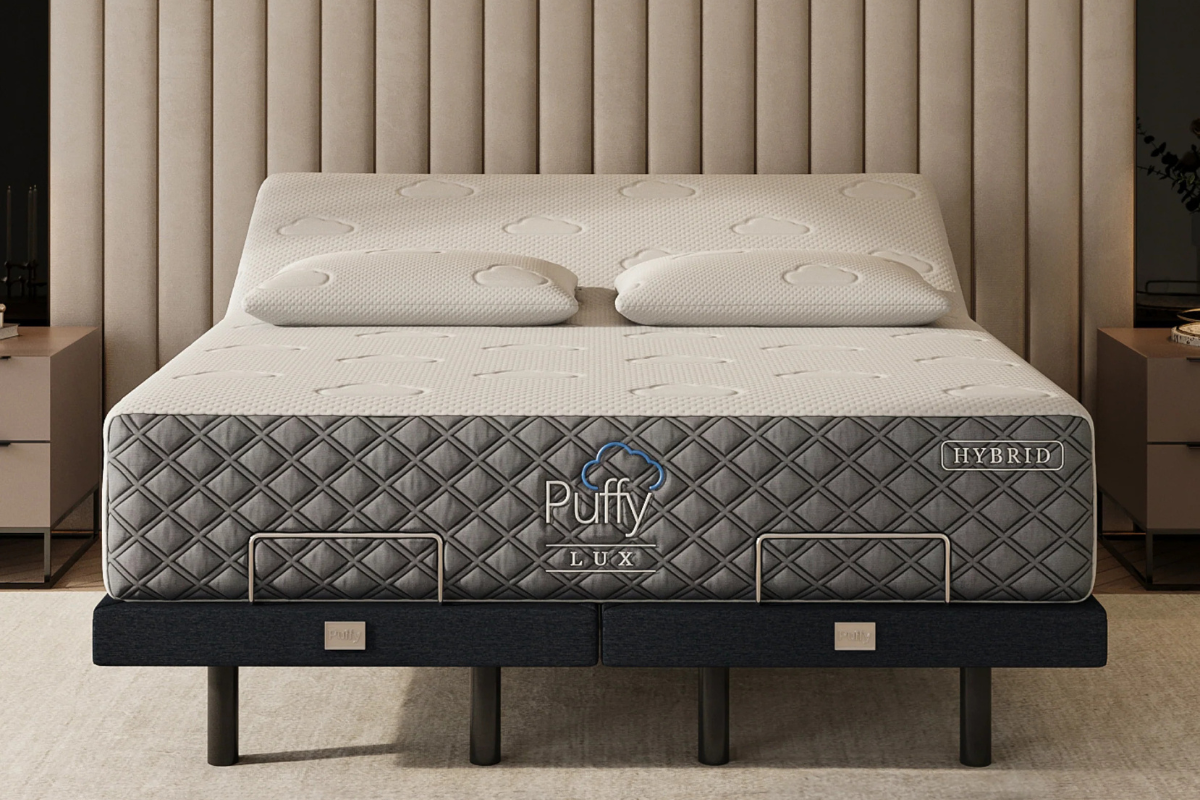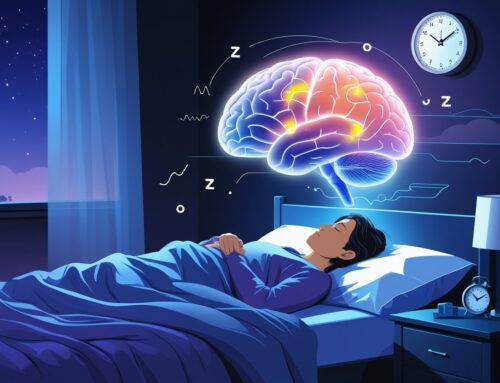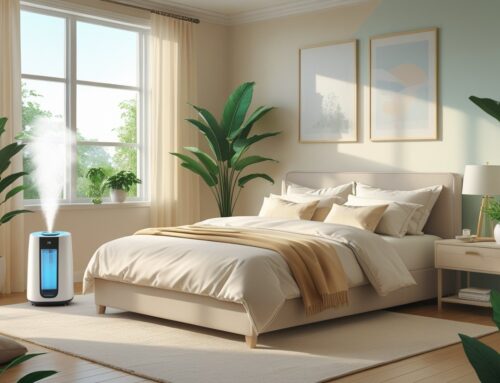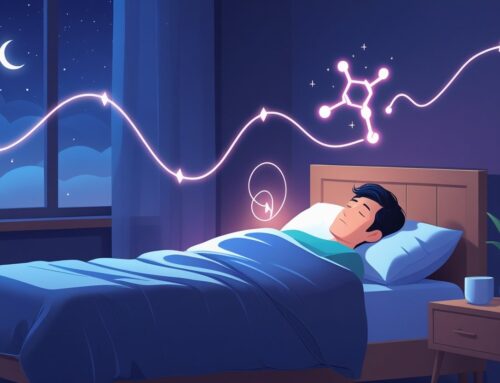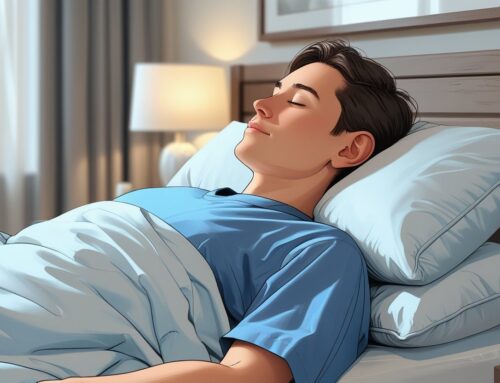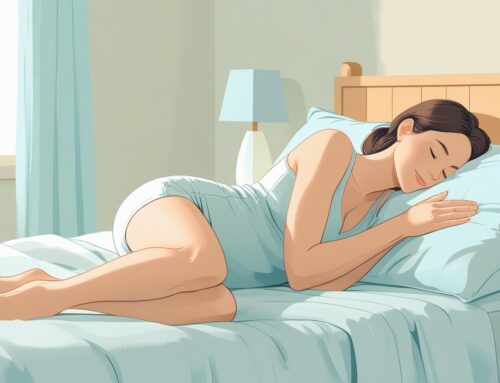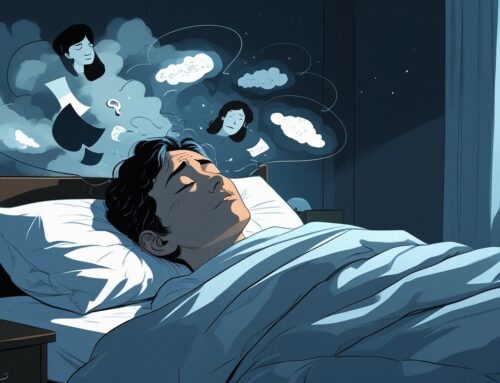A lot of people think that having a drink helps them sleep better, but it’s not quite that simple. While alcohol might make it easier to fall asleep at first, it often messes with the quality of your sleep later on—like waking up in the middle of the night or feeling unrested in the morning.
It disrupts key stages of sleep, especially REM sleep, which plays a big role in memory and brain health. Over time, regular drinking can lead to sleep issues like insomnia or just poor-quality rest. Knowing how alcohol affects your sleep can really help when it comes to making smarter choices, especially before heading to bed.
If you’ve been drinking, getting decent sleep means being aware of these effects and finding ways to work around them. Understanding the connection between alcohol and sleep is a good step toward building better habits and getting more restful nights.
Key Takeaways
- Alcohol can cause sleep disruptions despite making it easier to fall asleep.
- Drinking affects important sleep stages, leading to lower sleep quality.
- Long-term alcohol use may contribute to chronic sleep problems.
- Even the best mattress can’t fully offset the sleep-disrupting effects of alcohol—healthy habits matter just as much as the sleep environment.
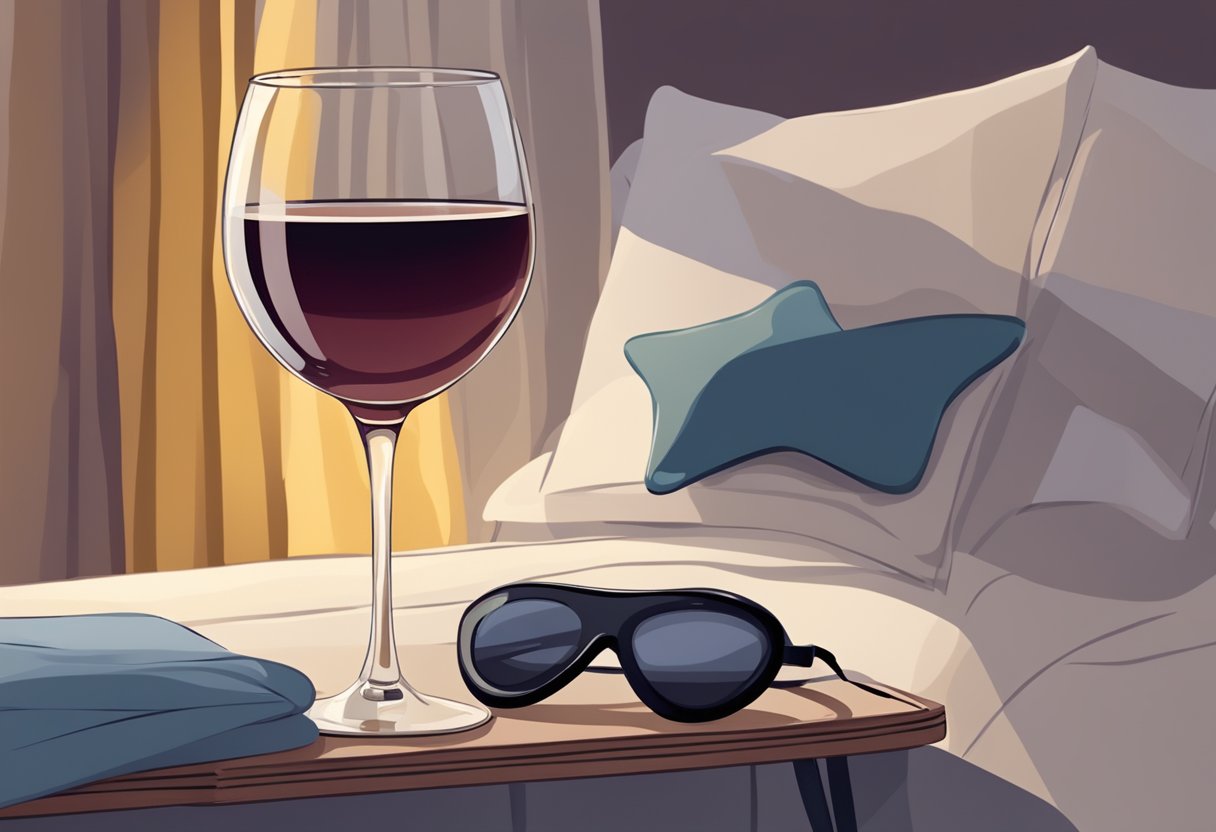
Alcohol changes how the body manages sleep. It can throw off different parts of the sleep process, disrupt normal sleep stages, and cause issues as the body works to break down alcohol during the night.
Alcohol’s Impact on Sleep Cycles
Alcohol can help people fall asleep faster, a benefit known as reduced sleep onset latency. But that’s where the benefits end. It tends to make sleep less steady, especially later in the night.
The beginning of the night might feel deeper or more restful thanks to alcohol’s sedative effects, but this often leads to more frequent waking and lighter sleep as the night goes on. That broken-up sleep lowers overall quality and can leave you feeling tired the next day. Alcohol also raises the chances of breathing problems during sleep, making things even worse for rest.
Effects on REM and Non-REM Stages
Alcohol messes with the natural balance between REM (rapid eye movement) and non-REM sleep. REM sleep is key for memory and emotional health. After drinking, REM is reduced early in the night and then rebounds later, which makes sleep feel choppy and less refreshing.
Non-REM sleep—especially the deep, slow-wave stage—can also take a hit with alcohol use. That’s the kind of sleep that helps you feel truly rested. Over time, heavy or regular drinking can mess with both REM and non-REM sleep, making it harder to get the quality rest your body needs.
Alcohol Metabolism During Sleep
While you’re sleeping, your body is still working to break down alcohol, mostly through the liver. This process can throw off normal sleep rhythms. As your blood alcohol level drops during the night, sleep tends to become lighter and more disturbed. On top of that, alcohol relaxes the muscles in your throat, which can lead to snoring or even sleep apnea. That means more waking up, less oxygen during sleep, and lower overall sleep quality.
Alcohol often feels like it helps with falling asleep, but it usually gets in the way of truly restful sleep. Many people find themselves waking up in the middle of the night or having a hard time falling back asleep after drinking. Understanding why alcohol causes these sleep issues, and what you can do about them, can make a big difference in how well you rest.
Can Alcohol Cause or Worsen Insomnia?
Yes, alcohol can definitely trigger or make insomnia worse. It might help you drift off faster at first, but it also cuts down on REM sleep—the deep, restorative stage that helps you feel refreshed. Without enough REM sleep, rest just isn’t as effective.
Alcohol is tied to more than just trouble falling asleep. People who drink often report waking up during the night and struggling to get back to sleep. This cycle can make insomnia worse over time. In fact, research shows that frequent binge drinking raises the risk of insomnia significantly.
Why You Can’t Sleep After Drinking
Once your body starts breaking down alcohol, a rebound effect kicks in that can mess with your sleep. A few hours after you fall asleep, brain activity ramps up again, making it tough to stay asleep.
This often leads to tossing, turning, and waking up a lot during the night. Alcohol also interferes with things like your breathing while you sleep, which only adds to the restlessness. That’s why it’s so common to have a rough night’s sleep or feel like you didn’t sleep at all after drinking.
How to Stop Alcohol-Related Insomnia
The best way to avoid alcohol-related sleep problems is to cut back or avoid drinking close to bedtime. Giving your body a few hours to process alcohol before sleep helps protect your natural sleep cycle.
Other helpful strategies include sticking to a regular sleep schedule and creating a peaceful bedtime routine. If sleep problems continue even after cutting back on alcohol, it might be time to talk to a professional. Services like SAMHSA’s National Helpline offer free, confidential support to help manage alcohol use and get better sleep.
Alcohol may help some people fall asleep faster, but it doesn’t actually lead to better sleep. In fact, it throws off key stages of the sleep cycle and often causes people to wake up during the night. These disruptions can lead to poor rest and feeling tired the next day.
Fragmentation and Nighttime Awakenings
Alcohol breaks up the natural flow of sleep, a problem known as sleep fragmentation. It cuts down on REM sleep—the deep, mentally restorative phase that helps with memory and brain function. After a few hours, the calming effect of alcohol fades, and that’s when people often wake up.
This early wake-up is pretty common and can make it tough to fall back asleep. As a result, alcohol increases how often people wake up during the night. This constant interruption throws off the body’s natural sleep rhythm and makes rest less effective.
Daytime Sleepiness and Fatigue
When alcohol disrupts your sleep, it usually shows up the next day as fatigue and low energy. Because REM sleep is reduced and rest is broken, the brain doesn’t get the recovery time it needs. That can lead to sluggishness and trouble concentrating.
Even though alcohol might make you feel drowsy at first, it often backfires, leaving you more tired afterward. Drinking regularly, especially right before bed, raises the risk of ongoing sleep issues and next-day sleepiness. For more on how alcohol affects different sleep stages, check out this detailed explanation from Piedmont Healthcare.
Alcohol affects the brain and body in ways that reduce alertness and increase feelings of tiredness. This happens because it slows down brain activity and changes how certain brain chemicals work, making you feel drowsy. Understanding these effects helps explain why so many people ask, “Does alcohol make you sleepy?” or “Why does alcohol make me tired?”
How Alcohol Induces Drowsiness
Alcohol increases the activity of a brain chemical called gamma-aminobutyric acid (GABA). GABA’s main role is to slow down nerve activity in the brain. When alcohol boosts GABA’s effect, it causes the brain to slow down even more than usual.
This slowdown leads to reduced mental alertness and a sense of relaxation. The brain’s communication with the body also slows down, which creates that calm, sleepy feeling. That’s why some people find that a glass of wine or a drink makes them feel drowsy shortly after.
Short-Term Sedative Effects
Alcohol works as a depressant on the central nervous system, meaning it slows down overall brain function. This sedative effect can help people fall asleep more quickly by making them feel more relaxed and tired.
But that sleepy feeling doesn’t last. Alcohol may make you feel drowsy at first, but it can actually interfere with deep sleep later in the night. So even though you might fall asleep faster, you’re more likely to wake up often or spend more time in lighter, less restorative sleep stages.
For those wondering, “Why does drinking make me tired but I still wake up feeling unrested?”, the sedative effect explains why you feel sleepy at first, but not why your sleep feels unrefreshing later on.
For more detailed information, visit this article on alcohol and sleepiness.
Many people believe that a drink before bed helps them fall asleep faster and rest better. But alcohol’s effects on sleep are more complicated than they seem. What might feel helpful at first usually leads to poorer sleep overall.
Does Alcohol Really Help You Sleep?
Alcohol can make it easier for some people to fall asleep quickly because of its sedative effects. That’s why so many ask, does alcohol help you sleep? In the short term, it can shorten the time it takes to drift off but that benefit doesn’t last.
As the night goes on, alcohol starts to interfere with your sleep cycle, especially with REM sleep, which is important for feeling refreshed. This leads to waking up more often and spending more time in lighter sleep. Using alcohol to fall asleep often leaves you feeling groggy and low on energy the next day.
The idea that any kind of alcohol, even beer, can help you sleep better is misleading. Research shows that beer or hard liquor doesn’t lead to good quality sleep and can actually make sleep problems worse. Overall, alcohol gets in the way of your body’s natural ability to rest.
Drinking Wine Before Bed
A lot of people wonder if wine, especially red wine, is a better option before bed compared to other alcohol. While it does contain some compounds that might help you unwind, it still has the same disruptive effects on sleep. Wine might make you feel relaxed at first, but it still reduces the deeper stages of sleep and leads to more interruptions during the night. So even though wine is often seen as a gentler choice, it can still lower sleep quality.
Despite common myths, wine isn’t a safer or better solution for improving sleep. Like any other alcoholic drink, it raises the chances of waking up during the night. If you’re trying to sleep better, skipping alcohol before bed is a smarter choice.
Drinking alcohol affects how the body sleeps and recovers during the night. But with a few simple steps, you can improve your chances of getting better sleep, even after having a drink. It all comes down to timing, hydration, and getting your body ready for rest.
How to Sleep After Drinking Alcohol
Staying hydrated is one of the best ways to sleep better after drinking. Sipping water between alcoholic drinks can help prevent dehydration, which often makes sleep worse. It’s also a good idea to drink a full glass of water before heading to bed.
Try to avoid caffeine and heavy meals late at night since they can make it harder to relax and fall asleep. Also, using the bathroom before bed can reduce the chances of waking up in the middle of the night.
Improving your overall sleep environment helps, too. Keep your bedroom cool, dark, and quiet. A good mattress and comfortable pillows can make a big difference. And be sure to turn off screens and dim the lights at least 30 minutes before bed to give your brain time to wind down.
How to Fall Asleep After Drinking
Falling asleep after drinking can be tough because alcohol throws off your natural sleep rhythm. One helpful tip is to stop drinking at least three to four hours before going to bed. That gives your body some time to start processing the alcohol.
Getting some physical activity during the day can also help you fall asleep faster and sleep more deeply. Just be sure to avoid intense workouts too close to bedtime.
Creating a relaxing bedtime routine can make a big difference. Try reading a book, doing some deep breathing, or light stretching. These small habits help calm your body and mind, making it easier to drift off, even after drinking.
Chronic alcohol use disrupts normal sleep patterns and can lead to several health issues. These sleep disruptions affect both how much and how well a person sleeps, often leading to long-term sleep problems that gradually get worse. Understanding how alcohol impacts sleep helps explain why people who drink heavily may struggle with rest and overall health.
Chronic Use and Sleep Disruption
Over time, regular alcohol use changes how the brain regulates sleep. It can make it harder to fall asleep and often shortens total sleep time. Alcohol reduces deep sleep (NREM sleep) and interferes with REM sleep—the stage that’s important for memory and emotional balance. This kind of disruption lowers sleep quality and can leave people feeling tired throughout the day.
Long-term alcohol use can also lead to sleep disorders like sleep apnea and insomnia. These conditions interrupt breathing and cause frequent wake-ups at night. People who rely on alcohol may also feel the need to sleep longer to make up for poor-quality rest, which is why some alcoholics tend to sleep a lot.
Sleep Patterns in Alcohol Dependence
People who are dependent on alcohol often have disrupted sleep both while drinking and during withdrawal. While drinking, falling asleep might seem easier, but the sleep itself tends to be lighter and shorter. During withdrawal, insomnia is very common and can stick around for months, making recovery even tougher.
Sleep issues linked to alcohol dependence often include:
- Trouble falling asleep
- Less total sleep time
- Reduced REM sleep
These sleep problems increase the risk of mood disorders, memory issues, and can even lead to relapse. Research shows that the more someone drinks over time, the worse their sleep becomes, and that ongoing poor sleep can take a serious toll on overall health (source).
When alcohol affects sleep, having the right mattress can make a noticeable difference. While a mattress can’t fix the root causes of sleep disruption from alcohol, it can help support better rest by improving comfort, reducing pressure points, and promoting deeper sleep when possible.
People who experience fragmented sleep, insomnia, or discomfort due to alcohol use often benefit from a mattress that provides both support and softness. The Puffy Lux mattress is a great option for this. It’s designed to cradle the body with a plush, pressure-relieving surface while keeping the spine properly aligned. Its advanced cooling features also help regulate temperature, which is helpful since alcohol can interfere with the body’s natural temperature control during sleep.
For anyone struggling with poor sleep quality related to alcohol, pairing better habits with a high-quality mattress like the Puffy Lux can make it easier to fall asleep, stay asleep longer, and wake up feeling more rested even on difficult nights.

